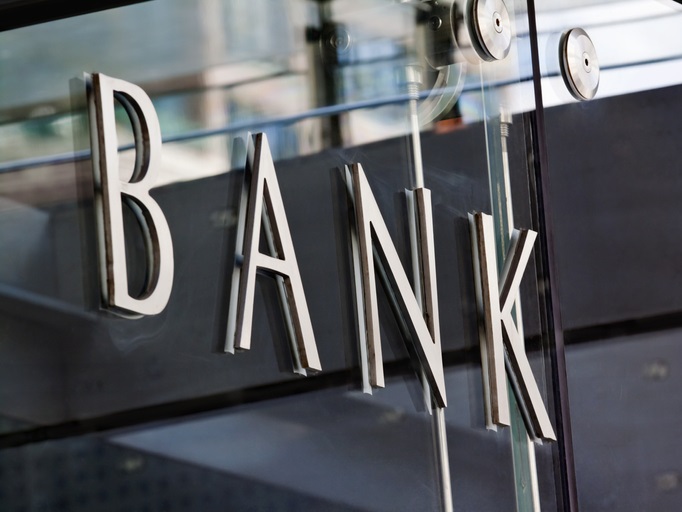The two UK bank shares to buy right now
Costs will likely rise next year, and these UK lenders will cope best. The shares are cheap, too.
2nd December 2020 12:29
by Graeme Evans from interactive investor
Costs will likely rise next year, and these UK lenders will cope best. The shares are cheap, too.

Investors hoping the rollout of the Pfizer vaccine might signal a change of fortunes for banking stocks have been warned about significant cost challenges facing the sector next year.
Deutsche Bank has published a note in which it calculates that the major UK banks will be hard-pressed to meet their efficiency targets, when faced with rising costs around the impending wave of non-performing loans and the inflationary Covid-19 bounceback.
Analyst Robert Noble wrote:
“Banks need to find 6% of their cost base in efficiencies next year to offset these pressures and hit consensus expectations. We see this as very challenging - the average cost reduction in any one year is only 2%.”
UK banks trade at 7.6 times 2022 earnings forecasts, which is a 13% discount to the long-term average and an 11% gulf to European banks due to ongoing Brexit uncertainty.
Barclays (LSE:BARC), Lloyds (LSE:LLOY) and NatWest (LSE:NWG) are at a 5-6% discount to their valuations, but Deutsche's Noble favours Barclays over the other two. His only other ‘buy’ recommendation in the sector is Virgin Money, which on a multiple of 5.6x is the cheapest among the UK banks despite a 43% rise in its price since mid-July.
- Most-bought FTSE 100 and AIM shares in November 2020
- FTSE 100 predicted to boom on back of Brexit trade talks
- Shares for the future: the latest list revealed
- UK shares: tips on how to find bargains and avoid value traps
He explained:
“Barclays has always traded at a discount to the other UK banks which we do not believe is warranted anymore given the positive anticyclical performance of the investment bank demonstrated this year and the positive performance on capital.”
HSBC (LSE:HSBA) trades at a premium to its long-term average at 9.6x, making it the most expensive of the UK banks and a premium that Noble thinks is undeserved. He prefers Standard Chartered (LSE:STAN) and says the Asia facing bank's valuation gap to rival HSBC is too large.
Deutsche Bank thinks revenues at UK banks will be down 7% on average by 2022, with Lloyds the worst impacted at 18% as the industry faces up to a prolonged period of lower interest rates. Restructuring and cost savings tend to take time, which is why investors should not expect to see meaningful benefits on this front until 2022.
Noble wrote:
“2021, we expect, may be more difficult on costs than consensus currently factors. Significant efficiencies would have to be found, and very quickly too, in order for the decline in costs factored into consensus to be met given the inflationary pressures we see next year.”
The cost of collecting bad debts is the biggest unknown going forward, with the figure potentially sizeable depending on the peak. Deutsche expects non-performing loan (NPL) ratios at UK banks to nearly triple from 1.6% in 2019 to 4.5% in 20/21 when factoring in a 30% ratio on government-guaranteed lending made at the peak of the pandemic crisis.
Deutsche said:
“While banks are prepared for the loan losses, they are less prepared for the operational cost of collection. We expect that collecting on these NPLs could inflate group costs by 1% to 3% next year.”
- UK banks and the need for inflation
- UK banks: material risks and recovery value
- Take control of your retirement planning with our award-winning, low-cost Self-Invested Personal Pension (SIPP)
Virgin Money (LSE:VMUK) highlighted last month that it expects costs will increase in 2021 by £10-15 million, or up to 2%, mostly due to collections.
Costs at UK banks have fallen significantly this year, but many of the drivers are temporary and will likely normalise in 2021. This includes movement in wage inflation and bonus payments.
Deutsche this week upgraded price targets on its favoured picks of Barclays and Virgin Money by 30p to 165p and 45p to 150p respectively. It is more cautious on HSBC, Lloyds and NatWest, with targets of 350p, 35p and 130p all below their current share prices.
These articles are provided for information purposes only. Occasionally, an opinion about whether to buy or sell a specific investment may be provided by third parties. The content is not intended to be a personal recommendation to buy or sell any financial instrument or product, or to adopt any investment strategy as it is not provided based on an assessment of your investing knowledge and experience, your financial situation or your investment objectives. The value of your investments, and the income derived from them, may go down as well as up. You may not get back all the money that you invest. The investments referred to in this article may not be suitable for all investors, and if in doubt, an investor should seek advice from a qualified investment adviser.
Full performance can be found on the company or index summary page on the interactive investor website. Simply click on the company's or index name highlighted in the article.